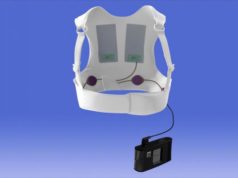Obese patients are at a higher risk of failed first subcutaneous implantable cardioverter-defibrillator (S-ICD) shocks during defibrillation testing. This is what a group from the University of Pennsylvania, CorVita Science Foundation and Boston Scientific Corporation, all USA, found. The results were published in JACC: Clinical Electrophysiology.
Subcutaneous-implantable cardioverter-defibrillators are an established treatment for patients with a high risk of ventricular arrhythmias and the group theorised that obesity may increase the defibrillation threshold and the rate of complications.
Data were analysed from 321 patients that were enrolled in the S-ICD investigational device exemption (IDE) study. They were then categorised into three body mass index (BMI) groups. The first group had a BMI of less than 25 kg/m2 (underweight and normal), the second group had a BMI of 25 to 30 kg/m2 (overweight), and the third group had a BMI of more than 30 kg/m2 (obese). The patients underwent implantation followed by defibrillation testing at 65J. Chronic defibrillation testing was repeated after 150 days post-implantation in a subset of patients.
There were 79 patients in the underweight and normal group, 105 in the overweight group and 137 in the obese group. In 52 patients a failed first shock occurred. In 41 patients the failed first shock occurred during implant defibrillation testing, in 11 patients the failed first shock occurred during chronic defibrillation testing, and in five patients the failed first shock occurred during spontaneous ventricular arrhythmias. The rate of failed first shocks increased across BMI categories with 5.1% occurring among underweight and normal patients, 13.3% occurring among overweight patients, and 16.9% occurring among obese patients p=0.04. Among obese patients, shock impedance was higher during failed first shocks than successful first shocks (103.5 ohms vs. 84.6 ohms; p = 0.001). The rate of failed first shocks during chronic defibrillation testing and spontaneous ventricular arrhythmias did not significantly differ among BMI groups, nor did the rate of other complications. This was a prospective, non-randomised multicentre trial and included patients who met standard ICD indications.
According to David Frenkel, the lead author and assistant professor of medicine at the University of Pennsylvania, Philadelphia, USA, “The reason for the higher rate of failed first shocks among obese patients is not yet clear. Whether this can be overcome by optimal implantation technique remains to be proven.”












